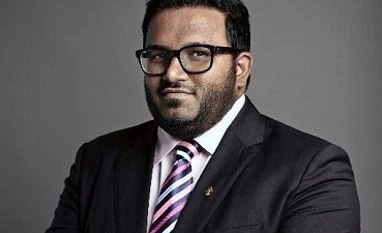The defamation bill passed by the Maldivian parliament is a "serious setback" for freedom of expression in the country, the US has said.
The Maldives' parliament passed the bill that criminalises defamation despite US-led international concern that it risked undermining basic freedoms in the country.
"The defamation bill passed by the Maldivian parliament today is a serious setback for freedom of expression in the country," State Department Spokesperson Elizabeth Trudeau said yesterday.
When the bill was first introduced to parliament about two weeks ago, the American embassy in Colombo, had jointly with five diplomatic partners, released a statement voicing concern about the erosion of fundamental freedoms and the institutions of democracy in Maldives, including freedom of assembly and press.
"The United States values freedom of expression as a key component of democratic governance. Democratic societies are not infallible, but they are accountable, and a free exchange of ideas is the foundation for accountability," Trudeau said.
"We continue to express our support for all Maldivians struggling to preserve their hard won democratic institutions and rights," she said.
More From This Section
Earlier, the Maldivian journalists groups had also said that the bill would have a direct negative impact on the media.
"The bill is a threat to constitutionally guaranteed freedom of expression and freedom of press," the groups had said.
"They have asked that the bill be amended to not give courts of law the authority to formulate the policies and regulation on how media should cover reports and rulings issued by courts and tribunals," they said.
Other amendments suggested include exclusion of articles related to national security, religious education and religious sermons and allowing the regulating body to investigate defamation cases against media personnel, prior to taking the cases to court.
The ruling party has defended the bill, saying it will not be withdrawn and that it was not a threat to anyone except journalists who fabricate stories.
After decades of autocratic rule, Maldives became a multiparty democracy in 2008.
However, President Yameen Abdul Gayoom is accused of reversing the democratic gains by misusing courts, police and the bureaucracy to silence dissent.
Street protests are banned in the country and people who post criticise government on social media are arrested.
Former president Mohamed Nasheed who travelled to the Britain on a medical leave from prison earlier this year has been given asylum by the UK.
Nasheed has also formed a united opposition front with other leaders in exile and supporters of those imprisoned to force Gayoom to resign.
)